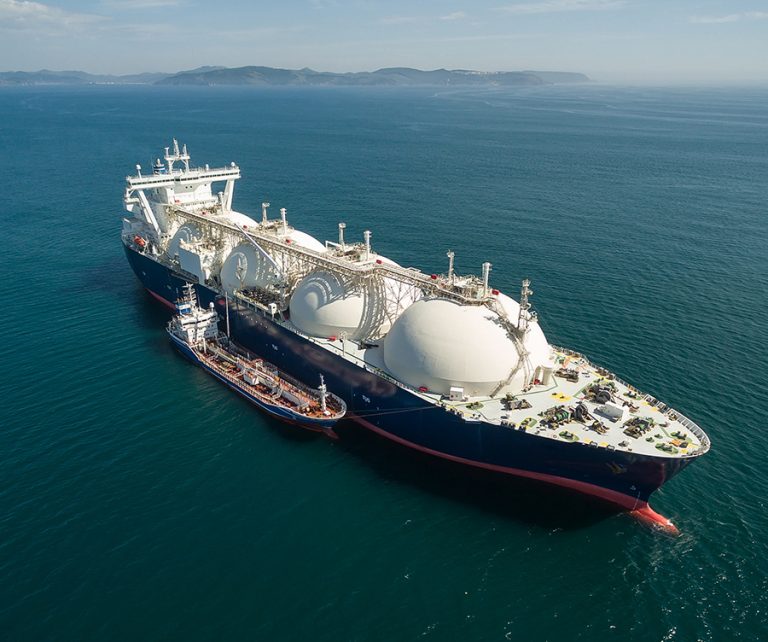A group of NGOs is suing the Export-Import Bank of the United States (US Exim) over its support for a controversial gas project in Mozambique, arguing approvals for a US$4.7bn loan were “rushed through” by temporary President Trump appointees.
TotalEnergies’ US$20bn offshore LNG project, which includes development of the Golfinho and Atum natural gas fields and the building of a two-train liquefaction plant, has been on hold since a terrorist insurgency in 2021, with the energy major declaring force majeure that year.
The firm has been pushing to restart development, yet the status of a US$14.9bn project financing package has been a key stumbling block.
However, in March, US Exim’s board voted to unfreeze its portion of the financing. Friends of the Earth US and Justiça Ambiental (JA) have responded by filing a civil suit against US Exim and its acting board of directors, urging a US District Court to halt disbursement of funds to the project.
US Exim’s decision should be declared “unlawful and null and void”, the July 14 court filing says, arguing the export credit agency has committed various breaches of the Export-Import Bank Act of 1945.
“The project has displaced thousands of local people, been the site of alleged human rights violations, surrounded by a violent conflict, and will cause significant environmental destruction,” Friends of the Earth says in a July 15 statement.
The US agency “rushed through approval without conducting required environmental reviews, economic assessment, or allowing the required input by the public and Congress”, the activist group says.
It adds: “Exim failed to follow its own charter and federal law, setting a dangerous precedent for future decisions.”
Much of the opposition to the project has centred on alleged human rights abuses.
As first reported by Politico last year, Mozambique security forces operating from the site have been accused of massacring at least 97 civilians in 2021.
In March, French prosecutors launched a judicial investigation into TotalEnergies over potential manslaughter and a failure to help people during the initial attack by Islamic State-linked militants, allegations the energy company has strongly denied.
In their filing, the NGOs claim that US Exim failed to assess the social impact of the project and human rights risks in the region.
“Exim approved the loan even though its own employees cannot travel to the area due to the ongoing danger,” it says.
“The security and humanitarian situation remains precarious. Insurgents are still conducting attacks and are still a threat to the project. There are reports that Mozambican security forces are still committing abuses.”
In a February statement, US Exim said it had “thoroughly reviewed the physical security situation of the project”, concluding that security risks had been “properly addressed, with substantial systems in place”.
No quorum
The NGOs also question the authority of US Exim’s current board.
President Trump named James Cruse as acting chair and James Burrows as acting first vice-president in February, but US Exim typically requires a quorum of three Senate-confirmed board members to sign off larger deals, as per its charter, the filing notes.
But just days after the interim appointments were appointed, funding was unlocked for the Mozambique project.
A US Exim spokesperson tells GTR: “As a matter of longstanding policy, Exim does not comment on pending litigation
“Exim remains committed to its mission of supporting American jobs by facilitating the export of US goods and services. The bank continues to operate in accordance with all applicable laws and regulations.”
US Exim has previously suggested it did not require additional congressional approvals as it was merely updating the 2019 financing agreement.
It said in a February statement, when financing was reapproved: “This second amendment, which contains no material change from the original approval and thus is not subject to additional US congressional notification, extends certain dates and makes related changes in connection with the restart of project construction operations.”
Several export credit agencies from Asia, Africa and Europe have also recommitted their support to the project.
Other participating agencies include the Export Credit Insurance Corporation of South Africa, Export-Import Bank of Thailand, Japan Bank for International Corporation, Nippon Export and Investment Insurance and Italy’s Sace.
Two other ECAs – UK Export Finance and Atradius DSB from the Netherlands – have reportedly maintained a pause on their portions of the project’s funding.







